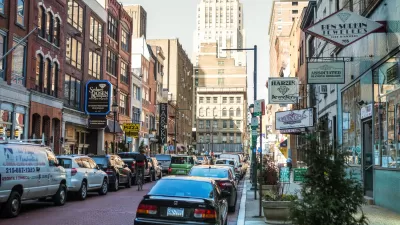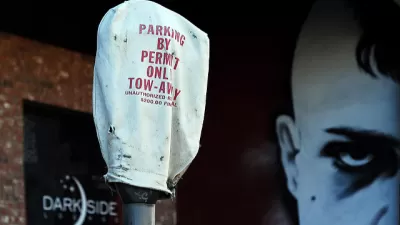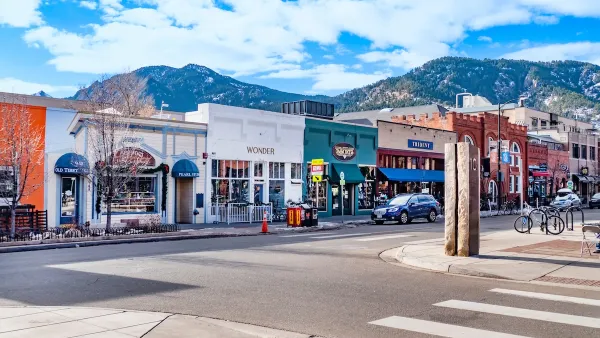A mixed-use project in Seattle's Phinney Ridge neighborhood has become a flashpoint in the ongoing debate over parking. Activists are fighting rules that let developers omit parking in areas with a certain level of transit service.

As Seattle's housing boom continues, parking is often optional. Jessica Lee writes, "In downtown and select areas near public transit stops across Seattle, nearly one-third of new apartments do not provide space for cars under years-old parking-optional regulations that aim to drive down construction costs so developers can build more housing."
A proposal to nix parking at a four-story mixed-use project called Phinney Flats has ignited debate between developers, the city, and activists who say "the lack of off-street parking will force vehicles onto already congested streets. Renters are not giving up cars at the rate city officials would like to believe, they say."
On one hand, an increasing number of Seattleites are doing without cars. "According to the city, about 40 to 48 percent of renter households in the city's neighborhoods with the most multifamily housing already get around without owning cars, and city planners expect that number to grow."
But neighborhood activists "say the parking regulations are unrealistic and misguided. They also argue that a lack of on-site parking disproportionately affects people who must rely on cars to get around, such as parents with young children."
The city has responded with a set of proposed rule changes that have done little to allay many activists' worries. "Seattle Mayor Tim Burgess has reviewed the proposed parking changes, including the definition of frequent transit service, and sent them to the City Council, the mayor’s office said Wednesday. Officials expect the land-use and zoning committee to review the proposal next month."
FULL STORY: Residents fight Seattle rules allowing apartment developers to forgo parking

Planetizen Federal Action Tracker
A weekly monitor of how Trump’s orders and actions are impacting planners and planning in America.

Chicago’s Ghost Rails
Just beneath the surface of the modern city lie the remnants of its expansive early 20th-century streetcar system.

San Antonio and Austin are Fusing Into one Massive Megaregion
The region spanning the two central Texas cities is growing fast, posing challenges for local infrastructure and water supplies.

Since Zion's Shuttles Went Electric “The Smog is Gone”
Visitors to Zion National Park can enjoy the canyon via the nation’s first fully electric park shuttle system.

Trump Distributing DOT Safety Funds at 1/10 Rate of Biden
Funds for Safe Streets and other transportation safety and equity programs are being held up by administrative reviews and conflicts with the Trump administration’s priorities.

German Cities Subsidize Taxis for Women Amid Wave of Violence
Free or low-cost taxi rides can help women navigate cities more safely, but critics say the programs don't address the root causes of violence against women.
Urban Design for Planners 1: Software Tools
This six-course series explores essential urban design concepts using open source software and equips planners with the tools they need to participate fully in the urban design process.
Planning for Universal Design
Learn the tools for implementing Universal Design in planning regulations.
planning NEXT
Appalachian Highlands Housing Partners
Mpact (founded as Rail~Volution)
City of Camden Redevelopment Agency
City of Astoria
City of Portland
City of Laramie





























